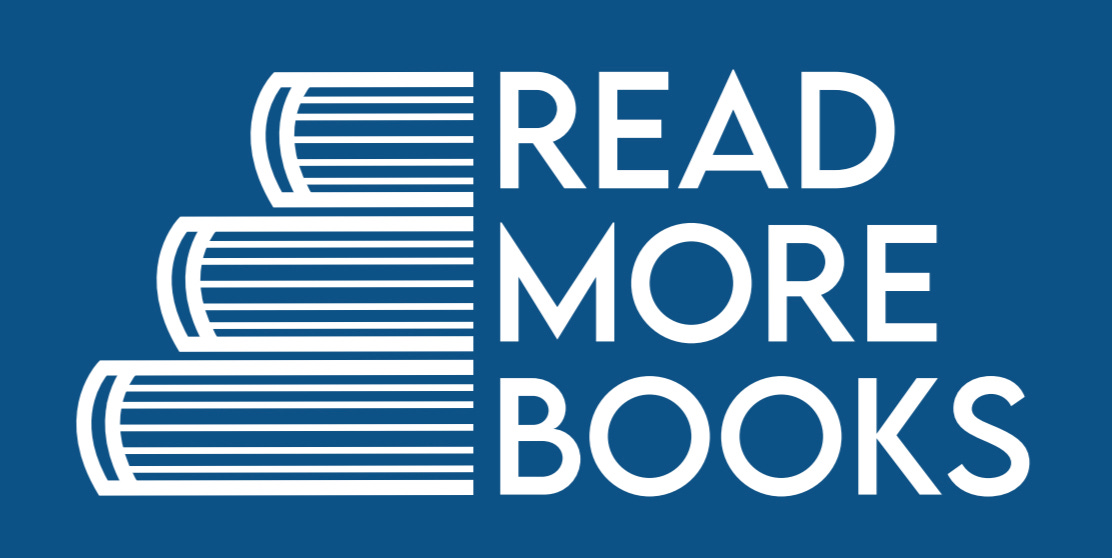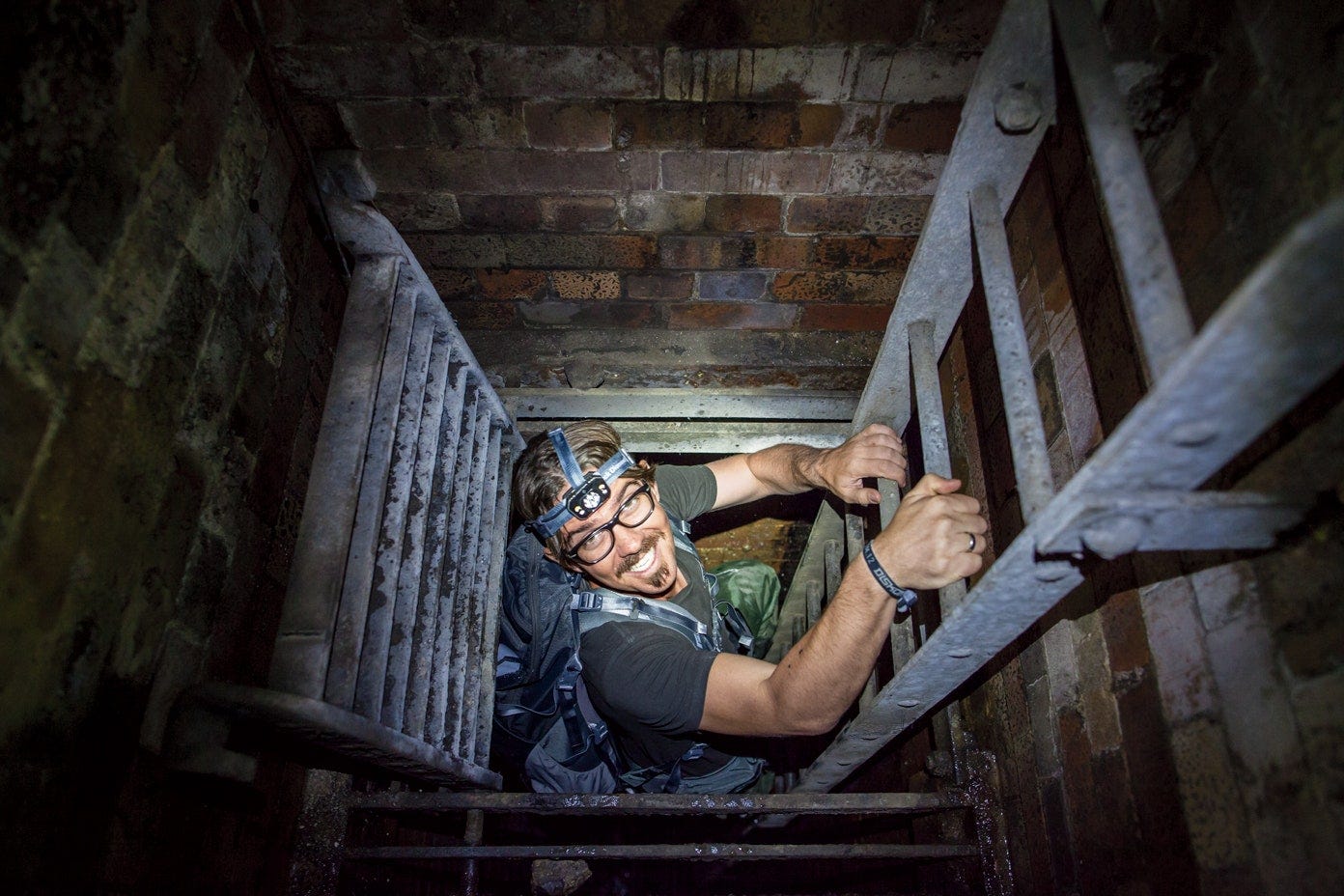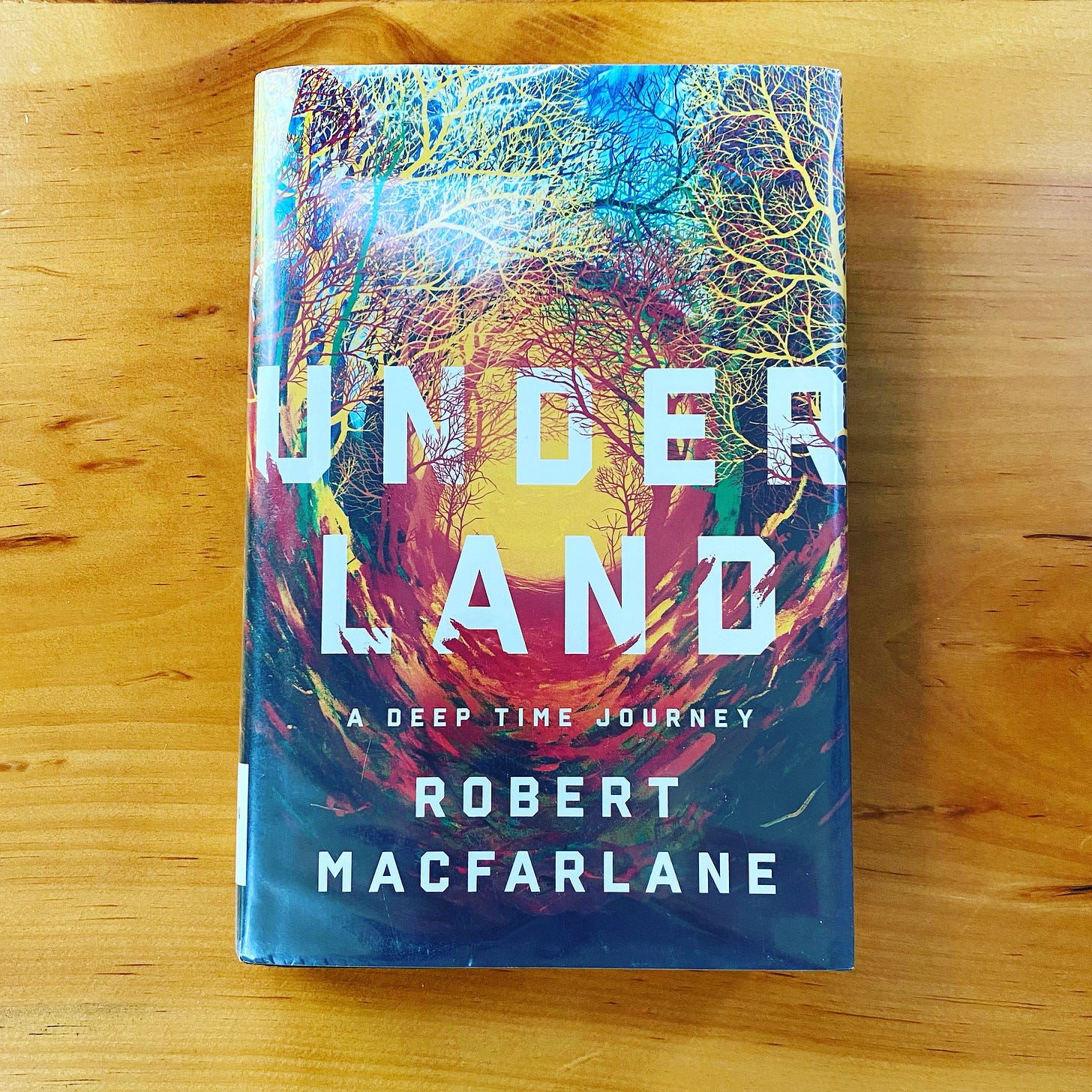The reading I did in the last couple weeks is exactly why I love books and reading. Robert Macfarlane’s Underland has long been on my radar; it earned all kinds of acclaim when it was published 2019. But, as it goes with reading, I just hadn’t gotten to it before this summer. I was at the library and browsing the featured shelves—curated by librarians, often around a theme—and found Underland sitting there on the “Nature” shelf. I grabbed it (literally going around a woman who was also browsing in that area; sorry!) and though I didn’t speed through the book, I sure did savor it.
After finishing it, I remembered I had Bunker on my shelf from back when author Bradley Garrett was on the Art of Manliness podcast. Macfarlane piqued my interest in the subterranean; Garrett allowed me to saunter into a mini obsession, being capped off by my reading of Garrett Graff’s Raven Rock in the next week or so.
Reading entirely at whim. Finding my reading tastes anew. It’s the beauty of books, in a nutshell.
A Few Bookish Questions With Bradley Garrett
As you’ll see, I loved Brad’s book about apocalyptic bunkers. He was kind enough to take some time to answer a few bookish questions for me this week. Be sure to grab the paperback of Bunker, coming out this month.
Check out my interview with Brad Garrett here.
Underland: A Deep Time Journey by Robert Macfarlane
Published: 2019 | Pages: 425
“We think of cities as lateral but of course they are also vertical. Cities extend upwards into the air by means of buildings, elevators and controlled airspace, and they extend downwards by means of tunnels, escalators, basements, graveyards, wells, buried cabling and mine workings.”
At the end of last year, when I asked folks about the best book they read in 2020, Underland made a number of appearances. It had already been on my radar, but those numerous stamps of approval rocketed it up my list and I was finally able to get to it in July. Macfarlane is a legendary nature writer, but given his focus on the UK, I had yet to read his epic, poetic work. It was clear, though, in the first pages of Underland, that I was encountering a master thinker and writer.
Macfarlane’s first book was about our fascination with mountains. He’s traveled down the mountain in subsequent books and now brings readers to the subterranean. Why is it that the underland carries such intrigue? such fear? such fascination?
Macfarlane brings us below the city and below the dirt to explore those underground landscapes that so escape our everyday attention. He explores a tight and complex cave system in the UK. Also in his home country he waxes philosophical in the midst of an underground quantum physics laboratory and an undersea mining operation. In Paris he descends to the famous underground tunnels and catacombs for days on end. In Eastern Europe is finds rivers that run underground for tens of miles at a time.
Looming behind much of this exploration are the facts of industrialism in the form of oil wells and mining, of climate change in the form of unprecedented glacial melting, of human meddling in building towering structures atop hollowed out landscapes.
There wasn’t as much of a narrative thread running through the book, and yet I kept reaching for it so that I could read a few more pages at a time. That’s not often my style, frankly, but the writing was so damn good that I just had to keep going. It was, in fact, so poetic and awe-inspiring that I could only manage to read about a chapter per day before needing a break. And that’s truly my only complaint.
I can just about guarantee that this book is not what you’ll expect. It’s not easy reading, but it is awe-inspiring.
Bunker: What It Takes to Survive the Apocalypse by Bradley Garrett
Published: 2020 | Pages: 284
“Although prepping is an extreme manifestation of dread, it is symptomatic of a wider sense that we have lost the ability to constrain or control those catalysts, we’ve lost agency. Preppers build to regain it. This, more than any other reason, is why we should pay attention to private bunkers: they are a reflection of how deeply our dread has saturated us.”
If you’ve been reading this newsletter for a while, you know that I’m a sucker for a good apocalyptic novel. What is it that ignites the human spirit to survive when all else is lost? These questions and topics have been with us for as long as we’ve been telling stories. Along with those stories, humans have built bunkers to survive the end times.
In this absorbing, outstanding book, Garrett profiles not only the bunker builders, but the capitalists—the “dread merchants”—making tons of money by purveying these end-of-times preparations.
Each chapter finds Garrett exploring a different aspect of end times “prepping”: Communities build out of fields of Cold War bunkers, an underground ultra-luxury “geoscraper” constructed inside an abandoned missile silo featuring million-dollar apartment, government bunker-building for continuity of government (which has accelerated in recent years), the PrepperCon conference for all things survival, companies that build tube-like corrugated bunkers for your backyard, and more.
Throughout, Garrett tackles the philosophical underpinnings of prepping culture. Are these people crazy? Are they on to something? What lies underneath this belief in a coming apocalypse? What he ultimately finds, among the suspicion to be sure, is a surprising kinship:
“I might reach for Michael Foucault, and they for InfoWars, but we understood each other: we were all getting screwed by technology, corporations, and the government.”
Reminding me of Mark O’Connell’s Notes from an Apocalypse1, Garrett movingly and memorably explores the big question I always think of most when it comes to the apocalypse: the individual vs. the community. These novels tend to always explore the extreme negative: roving bands of marauders and murderers pepper every story in the genre. But what if people band together for the re-building of society and actually treat each other well? That particular “what if” is rarely explored.
In spite of a few slim rays of optimism that Garrett found, he also realized that delving into these cultures actually raised his anxiety about some sort of cataclysm actually happening. There’s a lot of fear being peddled out there and “what the dread merchants sell is shelter from the cascade of existential horror we all seem to be waiting for.”
There’s certainly plenty of existential horror to go around these days; what preppers are doing is exerting some control over that feeling. Better to be prepared than left standing around trying to buy toilet paper—as we all did last spring.
Bunker is truly one of my favorite reads of the year so far. It’s partly a niche cultural tour (which I always love), partly an easy-reading philosophical exploration, and a little bit of a revealing, beautifully written memoir about what happens when you spend too much time living with the end of the world always in mind.
Thanks so much for reading! I sure appreciate the support.
-Jeremy







I would love to see a post covering some of those “niche cultural tour” books.
Jeremy, for a book about “the underground” I could not recommend a book more than “The Descent” by Jeff Long. One of my absolute favorite novels.